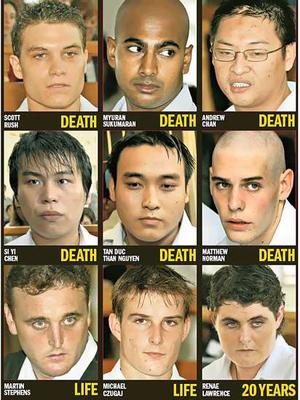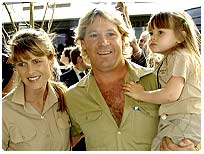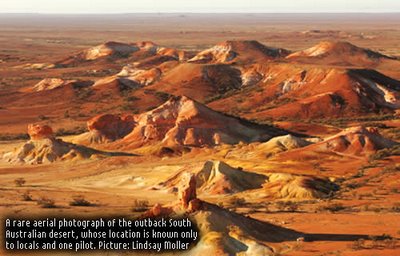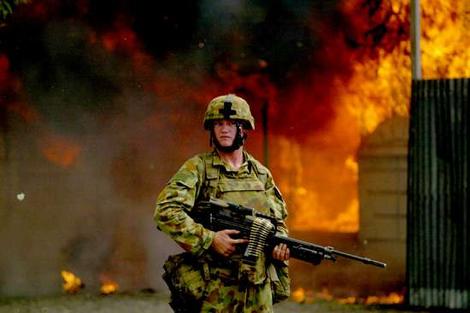Steve Irwin spent thousands of nights of his life in the middle of the Australian bush, jungles, rainforests and deserts. When he wasn't tracking crocodiles and nocturnals by torchlight, he enjoyed sitting around a fire, chatting with his wife, his camera crew, his friends, or just listening to the sounds of the night wilderness.
So it's wonderfully fitting, then, that as part of the farewell for Steve, his family and friends gave him a send-off around a campfire.
From the Sydney Morning Herald :
On Saturday, (Steve's wife and kids) were among a small group of family and friends who took part in a funeral in the grounds of Mr Irwin`s Australia Zoo.
Bob Irwin, the wildlife celebrity's father, told a media conference today that the intimate farewell "was held just like he would have wanted with everyone telling their favourite stories about him around a candlelit fire.
Soon after his death, the Irwin family turned down offers by the Queensland and Federal Governments for a state funeral, saying he had regarded himself as "just an ordinary bloke" who would not have wanted such a fuss being made.
A PETA spokesman was asked for his thoughts on Steve Irwin as a conservationist, and on the way he lost his life. Not much sympathy here :
“It comes as no shock at all that Steve Irwin should die provoking a dangerous animal....He made a career out of antagonizing frightened wild animals, which is a very dangerous message to send to kids.”Cheap? Far from it.
“If you compare him with a responsible conservationist like Jacques Cousteau, he looks like a cheap reality TV star.”
Steve didn't blow his money staging demos and handing out leaflets to mostly disinterested people to promote his cause. He did something that obviously shocked PETA. He made his education of children to all things environmental FUN.
Yeah, PETA's idea of a "responsible conservationist" obviously doesn't include someone like Steve who spent millions of dollars buying up tens of thousands of acres of wilderness across Australia and the US, and a few Pacific Islands, to ensure vast pristine tracts of endangered animal environments will be protected forever.
Does that sound like a "responsible conservationist" to you? Hell, no!
Steve's sudden death has apparently shocked the hell out of the Jackass team, no strangers to throwing themselves in amongst the some of the most dangerous animals on the planet.
Here's Johnny Knoxville's reaction :
"God bless Steve Irwin. All the guys were really upset about that. We had so much respect and love for the guy.It ain't a cliche when it's that true.
"We were all talking about it and thought, 'If he's going to go it's the way he'd want to go'. He's got kids and that's horrible, but he was doing what he loved.
"I know it's cliche, but if there's any man who was doing what he loved it was Steve."
One member of Jackass, Steve-O has been so shocked by the death of Irwin that he's thinking about throwing in his own blood-soaked encounters with some of the most dangerous animals on the planet :
"I think I'm generally going to close the book on wildlife encounters,"Steve-O had a nasty brush with death recently when he offered himself up as 'human bait' to a Mako shark during the filming of a Jackass movie. The Mako nearly took his leg off. He managed to kick it away in time.
The 'Crocodile Hunter' Is Being Remembered, And Celebrated, Right Around The World
Steve Loved His Surfing - 250 Australian Surfers Give A Special Ocean Memorial 'Service' In His Honour
Steve Irwin To Be Replaced On Animal Planet By....Ted Nugent!




